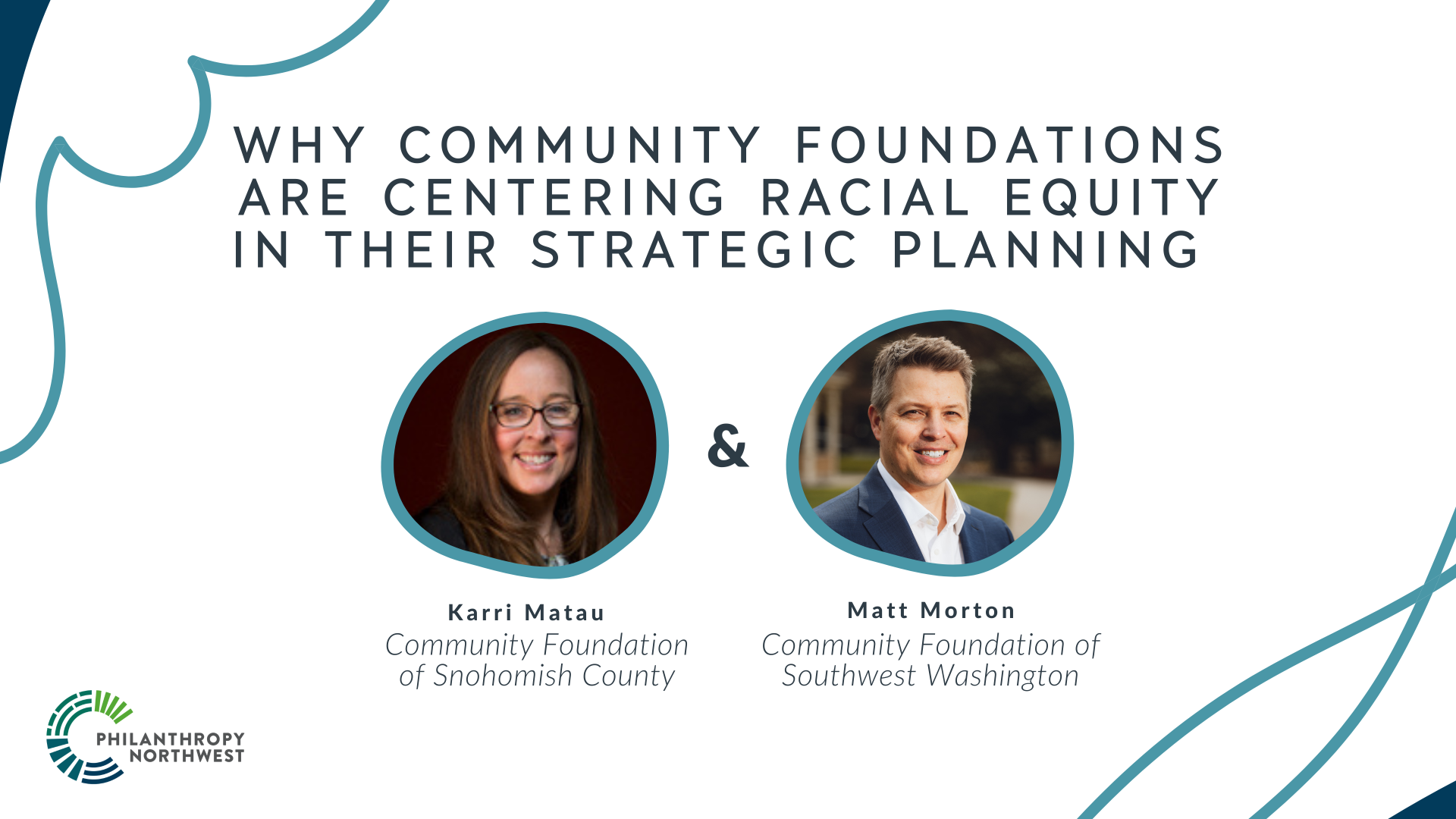
Strategic Planning requires an organization to define its direction, vision for the future and the goals necessary to achieve the said vision. In the past, for many organizations, this process centered on programming and donor stewardship. More recently, foundations have begun centering racial equity in their strategic planning, finding that it’s not only what they do externally but what they do internally, as well that matters.
Karri Matau is the president and CEO of the Community Foundation of Snohomish County (CFSC), whose mission is to “partner with donors and organizations to strengthen Snohomish County communities.” Founded in 2001, CFSC has awarded more than $45.7 million in grants since its inception.
According to Karri, CFSC first included racial equity in their strategic planning in 2014, a decision that better prepared them but did not make them invincible to 2020.
“Our racial equity journey started with organizational learning, and our decision to be intentional about racial justice. This learning was both internal and external, and would go on for years. Actually, that’s why when we decided to be more intentional about racial equity, our first instinct wasn’t to move into the creation process,” says Karri. “We didn’t write an equity statement immediately. Instead, we stayed in the learning and philosophy phase for a long time. In hindsight, this was the right decision because when 2020 happened, many organizations, primarily white-led organizations, were trying to make this shift to racial equity without actually having the changed culture to sustain the shift. They were more interested in checking off a box than making any real changes.”
Karri believes 2020 was still a learning moment for CFSC that highlighted areas of growth around how the organization developed their strategic plans and long-term goals.
“COVID happens and shows us the traditional strategic plan we had in the past would not have been able to be executed during the pandemic,” says Karri. “I saw we needed to move toward an adaptive plan, and our racial justice work was at the place in our organization where we knew we had to embed that work everywhere we lived and breathed, including our strategic plan. Doing this was important because at this point racial justice wasn’t only a part of our planning, it was a guiding value and guiding principle. This was us moving from the learning phase to action.”
While CFSC has been on their racial equity journey for almost 10 years, they are not alone in this work. Matt Morton became the president of the Community Foundation of Southwest Washington (CFSWW) in 2022. When he stepped into his new role, CFSWW had already laid the groundwork to further entwine racial equity into their organizational initiatives.
“As an organization, our equity journey began in 2014 at a Building Community Philanthropy session. We started questioning how racial equity should shape our behaviors, and our board incorporated this as a strategic priority in 2015. More importantly, we had staff who were ready to implement equitable practices into our programmatic work,” says Matt. “Since I began, part of what we’ve been doing is deepening this critical work. Racial equity requires us to make continuous improvements around how we fund, how we partner and how we engage with our donors and other communities. It also means defining and demonstrating how we take on long-term advocacy work. To me, that’s the next evolution for the community foundation.”
“Some communities are fine with there being winners and losers" Matt continues. "This approach — of accepting an inequitable status quo — has been repeated multiple times with the same results. We don’t need to uphold a system of winners and losers. Instead, we need to create a system where everyone can win on their own terms. We should still have universal goals for everyone, but we also need targeted strategies based on where those individuals are and that’s where equity shows up, in those efforts to elevate and impact acute community needs.”

